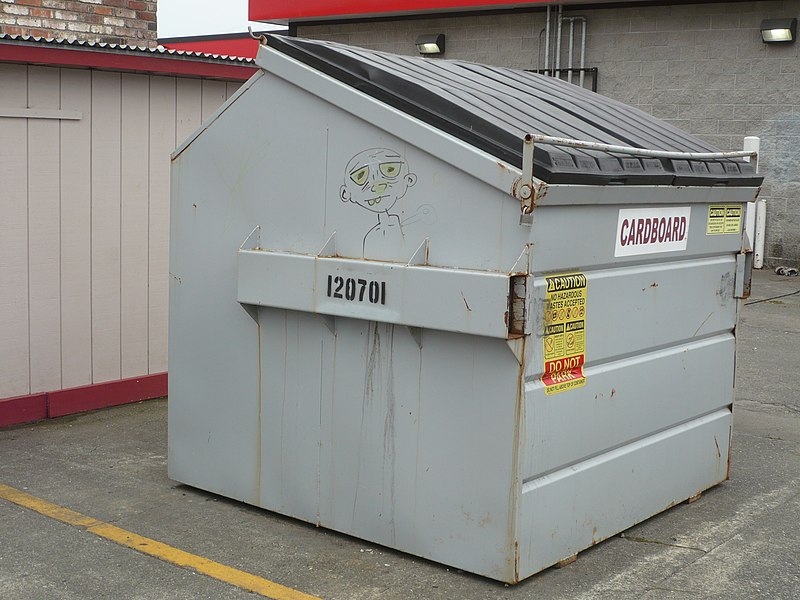
Every business has a trash area that includes, at the very least, a dumpster. Managing your trash area is important because it could potentially be one of the most dangerous areas of your facility — not to mention the smelliest!
Trash comes in many different forms: There are liquid wastes, paper, solids and industrial byproducts. In some businesses, some of the waste could be potentially dangerous, such as the biological wastes from hospitals and medical offices or chemical wastes from manufacturing processes.
Contact Your Trash Hauler
Before you dump anything into your dumpster, make sure that’s its safe and that the company hauling your garbage is aware of what they are handling. If they discover that you are dumping paints, chemicals, bio-waste or other potentially harmful materials into your regular trash, you could get in trouble with the local authorities.
It’s also important that you understand the recycling rules in your area. In some cities, industries are exempt from recycling cans, bottles, paper, plastic, glass and other materials. But in others, you can face stiff fines and other penalties if these materials are found in your regular trash.
Do You Need a Baler?
If your business receives a lot of products in cardboard boxes — such as a restaurant, hotel, or retail business — getting a baler could be a good idea. These are machines that wrap used cardboard with tight straps so that they can be handled for recycling more easily.
If you do use a baler, make sure every employee who will be operating it understands how to use it and its safety features. Balers have rapidly moving parts which could easily cause injury if not used properly.
Protecting Your Trash from Intruders
Sanitation is a huge concern with any trash area, especially if there is a lot of food or grease being thrown away. Rodents, birds, insects and other pests can quickly turn your trash area into a hazard if steps are not taken to properly control your trash.
Never allow anybody to throw open food or liquids into your dumpster or trash compactor. Not only will this attract pests, but it will make a huge mess that eventually will have to be cleaned up. Then there are the unpleasant odors that will need to be eradicated.
Double-Bag Heavier Loads
Use heavy duty trash bags that are graded to handle the number of pounds of trash you typically will put into them. For example, if you are dumping 50 pounds of solid or liquid waste, you will need to use a bag designed to handle a minimum of 50 pounds. If you occasionally exceed the rated strength of the bag, double bag the trash load to provide additional security and to prevent spills.
Transport trash to your dumpster, compactor or recycling area in enclosed containers, such as X-frame carts of other durable waste receptacles. Never allow workers to drag trash bags along the floor of your dock or warehouse because this can easily cause the bags to shred or break, creating a huge mess for somebody to clean up.
